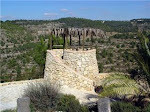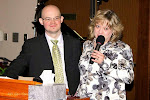“‘But on the fifteenth day of the seventh month, when you have gathered the produce of the land, you are to observe the festival of Adonai seven days; the first day is to be a complete rest and the eighth day is to be a complete rest. On the first day you are to take choice fruit, palm fronds, thick branches and river-willows, and celebrate in the presence of Adonai your God for seven days. You are to observe it as a feast to Adonai seven days in the year; it is a permanent regulation, generation after generation; keep it in the seventh month. You are to live in sukkot [booths] for seven days; every citizen of Isra’el is to live in a sukkah [booth] so that generation after generation of you will know that I made the people of Isra’el live in sukkot when I brought them out of the land of Egypt; I am Adonai your God.’”
Leviticus 23:39-43 Complete Jewish Bible (CJB)
In the fall of the year, on the full moon of the month, just a few days following Yom Kippur (Day of Atonement), the feast of tabernacles (Chag Sukkot in Hebrew) is observed. This was one of the 3 feasts in which God commanded the sons of Israel to go up to Jerusalem to celebrate. This feast was celebrated in a less structured way even by the patriarchs and other Oriental peoples. It was a harvest feast, or the Feast of Ingathering, when the farmers and vinedressers all gathered to celebrate the bringing in of the last crop of the year.

The word: Sukkot is a plural Hebrew word which means Tabernacles or booths. The singular form of this word is Sukkah. The first mention of this word is found in Genesis 33:17: And Jacob journeyed to Succoth, and
built him an house, and made booths (SUKKOT) for his cattle: therefore the
name of the place is called Succoth. The next time this is mentioned is after the children of Israel have left Egypt: And the children of Israel journeyed from Rameses to Succoth...Exodus 12:37

 This celebration is to be one filled with joy and rejoicing. In Deuteronomy 16:14, God commanded that you are to REJOICE in the feast: And thou shalt rejoice in thy feast, thou, and thy son, and thy daughter, and thy manservant, and thy maidservant, and the Levite, the stranger, and the fatherless, and the widow, that are within thy gates.
This celebration is to be one filled with joy and rejoicing. In Deuteronomy 16:14, God commanded that you are to REJOICE in the feast: And thou shalt rejoice in thy feast, thou, and thy son, and thy daughter, and thy manservant, and thy maidservant, and the Levite, the stranger, and the fatherless, and the widow, that are within thy gates.
The Feast of Tabernacles will be celebrated in the new heavens and new earth. And it shall come to pass, that every one that is left of all the nations which came against Jerusalem shall even go up from year to year to worship the King, the Lord of hosts, and to keep the feast of tabernacles. Zechariah 14:16
David referred to God's sukkah in a number of Psalms:
He made darkness His secret place; His sukkah round about Him were dark waters and thick clouds of the skies.Psalm 18: 11
For in the time of trouble, He shall
hide me in His sukkah, in the secret of His tent shall He hide me. Psalm 27:5
Thou shalt hide them in the secret of
Thy presence from the pride of men: Thou shalt keep them secretly in
a sukkah from the strife of tongues. Psalm 31:20
And then we find when the Jewish people were restored back to the land of Israel after their dispersion to Babylon, that they celebrated the Feast of Tabernacles, as commanded by Moses:
On the second day of
the month, the heads of all the families, along with the priests and the
Levites, gathered around Ezra the teacher to give attention to the
words of the Law. They found written in the Law, which the Lord had commanded through Moses, that the Israelites were to live in temporary shelters during the festival of the seventh month and
that they should proclaim this word and spread it throughout their
towns and in Jerusalem: “Go out into the hill country and bring back
branches from olive and wild olive trees, and from myrtles, palms and
shade trees, to make temporary shelters”—as it is written.
So
the people went out and brought back branches and built themselves
temporary shelters on their own roofs, in their courtyards, in the
courts of the house of God and in the square by the Water Gate and the one by the Gate of Ephraim. The whole company that had returned from exile built temporary shelters and lived in them. From the days of Joshua son of Nun until that day, the Israelites had not celebrated it like this. And their joy was very great. Nehemiah 8:13-17 NIV
In John, the seventh chapter, we find that Yeshua's (Jesus) family was going from the Galilee down to Jerusalem for the Feast and invited Him to go. This was the Feast of Tabernacles. However, He instructed them to go on without Him, but He came along later. Halfway through the seven day celebration, Yeshua went into the Temple and began teaching the people. The people were amazed that He taught with such wisdom, even though He didn't have formal learning, as did their religious leaders. And finally, on the last day of the Feast, we find that the Jewish people were celebrating a ceremony called Hoshana Rabba. According to Chabad.org (an Orthodox Jewish Website), "The seventh day of Sukkot is called Hoshana Rabbah,
and is considered the final day of the divine “judgment” in which the
fate of the new year is determined. It is the day when the verdict that
was issued on Rosh Hashanah and Yom Kippur is finalized."
 According to MyJewishLearning.org, "Every day of the year, after the sacrifice was burned, an offering of wine was poured on the altar. During Sukkot, there was also a water libation (nisukh hamayim). Some
have suggested that it was a folk rite, an inducement for rain made by
pouring out water at the season’s onset, transformed by the rabbis into a
symbolic Temple ritual. Each morning of Sukkot, the priests went to the pool of Siloah (Silwan) near Jerusalem to fill a golden flask. Shofar blasts greeted their arrival at the Temple’s Water Gate. They then
ascended and poured the water so that it flowed over the altar
simultaneously with wine from another bowl. When the priest was about to
pour the water, the people shouted “Raise your hand!” because of an
incident that occurred in a previous year: The high priest Alexander
Jannaeus (103‑76 B.C.E.) showed contempt for the rite by spilling the
water at his feet, a transgression for which worshippers threw their citrons at him."
According to MyJewishLearning.org, "Every day of the year, after the sacrifice was burned, an offering of wine was poured on the altar. During Sukkot, there was also a water libation (nisukh hamayim). Some
have suggested that it was a folk rite, an inducement for rain made by
pouring out water at the season’s onset, transformed by the rabbis into a
symbolic Temple ritual. Each morning of Sukkot, the priests went to the pool of Siloah (Silwan) near Jerusalem to fill a golden flask. Shofar blasts greeted their arrival at the Temple’s Water Gate. They then
ascended and poured the water so that it flowed over the altar
simultaneously with wine from another bowl. When the priest was about to
pour the water, the people shouted “Raise your hand!” because of an
incident that occurred in a previous year: The high priest Alexander
Jannaeus (103‑76 B.C.E.) showed contempt for the rite by spilling the
water at his feet, a transgression for which worshippers threw their citrons at him." What we hear Yeshua saying in the Temple, Now on the last day of the festival, Hoshana Rabbah, Yeshua stood and cried out, “If anyone is thirsty, let him keep coming to me and drinking! Whoever puts his trust in me, as the Scripture says, rivers of living water will flow from his inmost being!" (Now
he said this about the Spirit, whom those who trusted in him were to
receive later — the Spirit had not yet been given, because Yeshua had
not yet been glorified.) John 7:37-39 CJB
The pictures here are of my sukkot (booths) that I have constructed over the years.





No comments:
Post a Comment